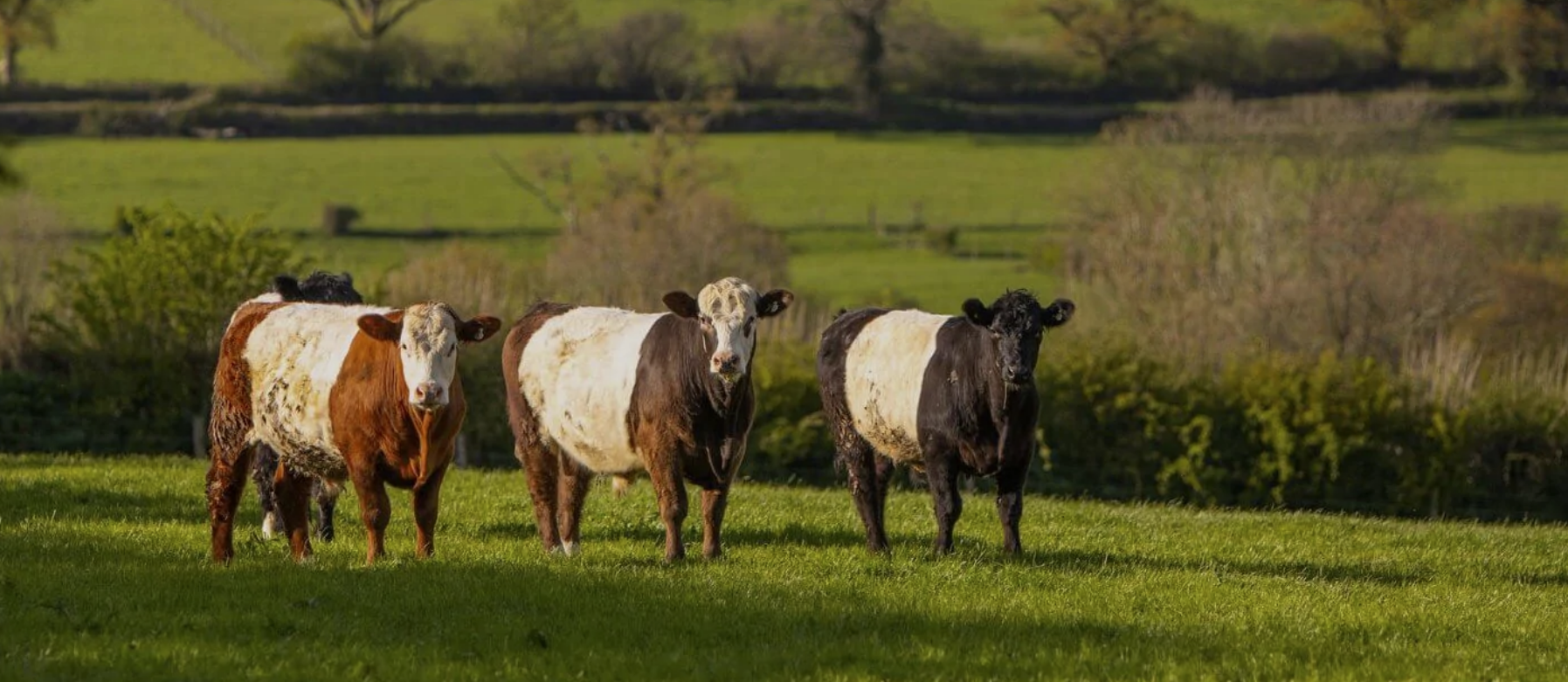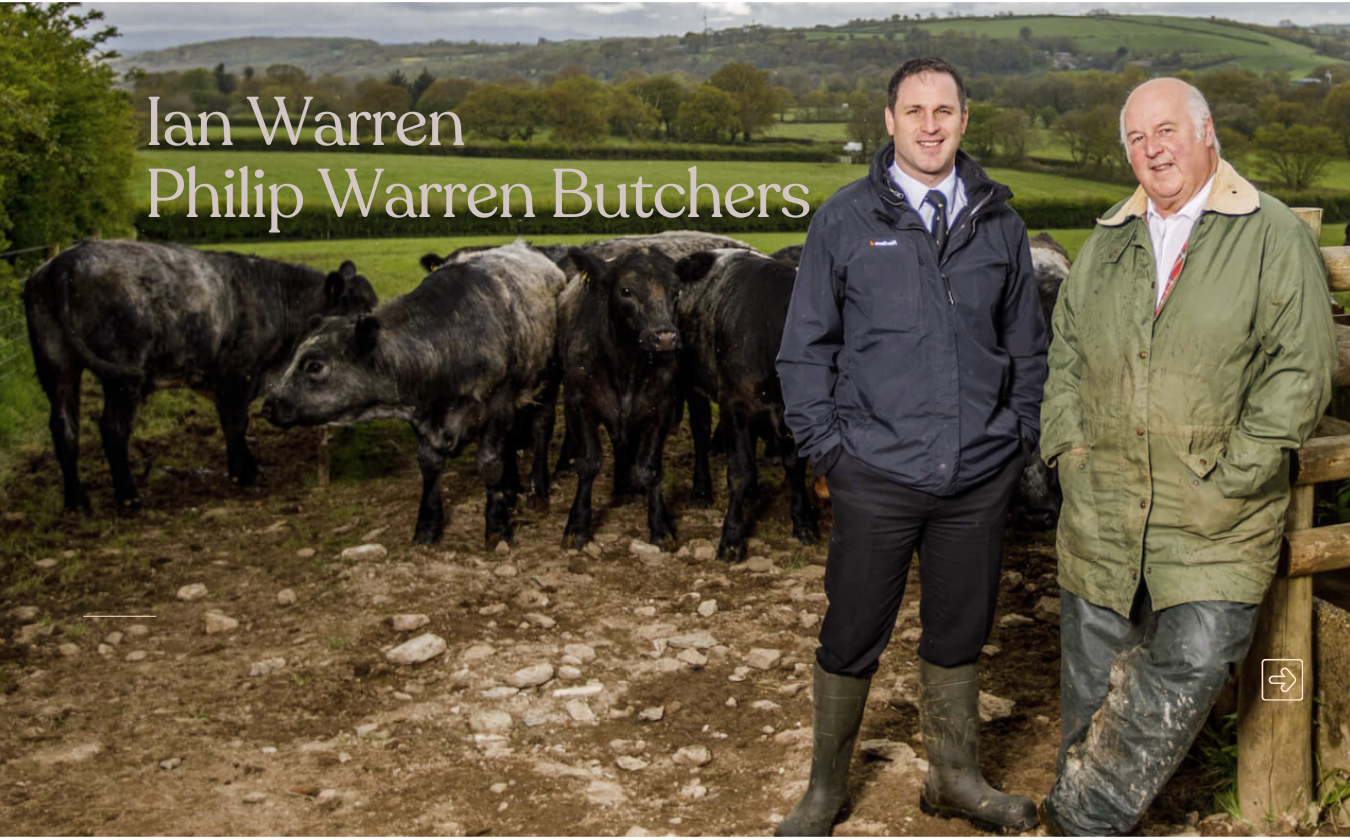‘Farm to table’ is becoming increasingly popular and important in Cornwall – supporting small farmers and delighting foodie eaters. Usually though, farm to table suppliers are only familiar with one part of the process. It’s rare to find professional butchers who farm.
We interview Ian Warren, the Director of Philip Warren Butchers, a family owned business that has created a direct route between traditional farming and high end catering. They have a large customer base in London and Bristol and also in their Cornish home – where they are sought after by the likes of Rick Stein and Paul Ainsworth.
Originally purchased by Ian’s father Philip in 1979, Ian now runs the business supported by his wife, sister, brother-in-law, cousins, nephews and of course, his mum and dad.
Tell us about the history of Philip Warren
It’s always been a food business. The shop originated in the town in 1880, and it was Dunn’s Grocers back then. Then it came into the Davies family, who still supply us with cattle. The business has maintained its roots in local farming supply, and it’s been Philip Warren since 1979.
We’ve grown the business together as a family really. Mum and Dad ran it together, and now it’s me. My sister and brother-in-law run the farming side, they have one farm on Bodmin Moor and another farm about a mile from our shop, down by the river Tamar. My dad is more on the farming side now, too.
Meanwhile my wife and I are in the butchery, and my wife is an accountant, along with my mum who does the banking. Cousins and nephews work with us too, so it’s very much a local family business, even though we have nearly 100 staff.
Who do you work with?
We’re down here in the middle of two moors, and we have all these great farmers around us who are limited by the modern purchasing tick boxes that you get with commercial cattle, which don’t suit traditional farming. But there are a lot of farmers between Bodmin and Dartmoor who can’t do much without traditional cattle. So where’s their route to market?
That’s what we’ve done for them. It may not be the best yielding beef, but it’s the best eating beef, and we’ve established a route to market for our farmers.
How important is that link between farm and table?
When we had the front of house teams come to see us, especially the ones who are Cornwall based, what we say is the link between the farmer and restaurant is very small when they work with us.
The beef that we would slaughter isn’t suited to the mass market because of the European grading system we use, all it does is grade the muscle size and so on, which tells you what percentage of meat you’re getting from the carcass. The dangerous thing with that is, yes, financially that animal is better as you get more flesh to waste ratio, but nobody stops to think about the eating quality.
Whereas for us, the eating quality is paramount. The traditional breeds are the best quality, but it takes more skills to raise and butcher those animals.
How much of a difference do your traditional methods make?
The reality is, 15 years ago dry ageing was a new thing, but it’s all we’ve ever done. Regenerative agriculture is the basic farming principle. The best way is the old traditional way – traditional breeds, proper beef farming with a cow that suckles its mum, outdoor reared pigs that live happy lives… Advances have been made in efficiencies in meat, but if you want the best you need to be traditional.
We’re finding we’re harking back to the big eco, carbon neutral farming. Our farming model in general over the last 50 years, it’s what we have been doing. We don’t stick animals in sheds, they’re grass fed. As nature intended. There’s no need to bugger around with it!
Tell us more about the Cornwall Project
When I joined the business, we decided the old bits of the business needed to go, and I centralised it in Launceston. We were trading well but I always felt our product was worthy of reaching more people. We had a lot of farmers producing a lot of good quality produce, and we wanted to help them sell more of it, while also running our own business.
A chap called Matt Chatfield, who runs the Cornwall Project, is from Launceston. His goal was take Cornish produce to London. We were the butchery. He spoke to us, a fishmonger, grocers, florists and so on.
So off we went to London and met a few people, got into a few restaurants, and once we established trust and got a reputation for good quality, we started supplying a two Michelin star restaurant in London called The Ledbury, and then everyone else followed on.
So how did you catch the attention of Rick Stein and Paul Ainsworth?
It wasn’t until we were in London and top restaurants that we had the better restaurants in Cornwall knocking on our door. Once we were known up there, everything unlocked down here. You’d think it would be the other way round, but it all seemed to work quite well.
A lot of people see our name on the menu, like the product they’ve had, and on the way back home might stop in and pick up a box load. We’re right on the Devon-Cornwall border, so we’re almost like the first town you stop in to get your meat and on you go.
We just seem to fit – we’re quite a simple, family business that do a half decent job and get on with it! The beauty of where we are is we’re fairly central, we’re close to the coast, Plymouth, Bodmin, all these towns around us, and we have a good loyal trade all year round.

